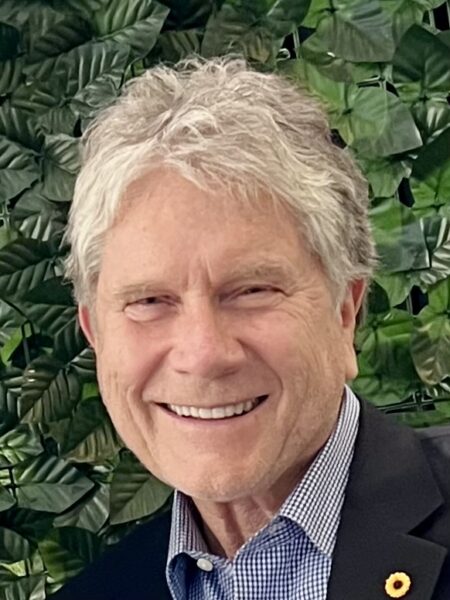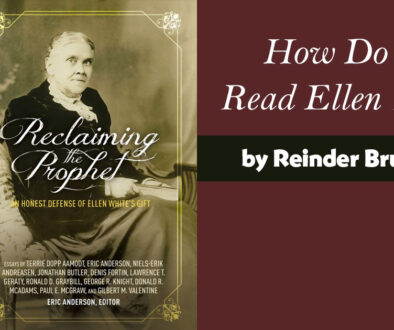Hurricane Ian, Captain Mac, and Why We Need Religion
by Jim Walters | 4 October 2022 |
Where was God in Hurricane Ian, one of the deadliest hurricanes to ever hit the US mainline? Here’s one view.
According to “Captain” Lewis McDonald, God miraculously preserved his ocean-going, shark-hunting cruiser. The boat surged over still-standing electric power lines, ending atop mangled mangrove trees 600 feet inland from its mooring at Fort Myers Beach, Florida. While most other boats surrounding McDonald’s were damaged far beyond repair, his only received a single thumb-sized hole in its hull.
“Captain Mac,” a man probably in his 60s, told a CNN reporter, with tears in his eyes, that his dad—now dead from cancer—had built the boat with him. “The boat’s part of my family. God spared it.”
Why we need religion
Upon hearing such a story, a skeptic might retort: “Oh, yeah? Captain Mac was just lucky! Where was God in the destruction of the thousand other Florida boats that were smashed?”
Steven Asma, a Chicago philosophy professor, used to be such a critic. Now Asma is a sort of convert to religion, as seen in his Oxford-published Why We Need Religion. Asma argues that religion’s intellectual challenges are insignificant beside its vital contribution to believers’ lives. Religion addresses the affective dimension of personal existence, says Asma—where we really live. Religion provides a reason to live that reaches into the visceral core of our being. A religious sentiment gave Captain Mac and millions of others a reason to pick up the pieces post-Ian, and even live optimistically—or so Asma’s logic suggests.
Asma takes a therapeutic view of religion: it helps us survive and even thrive in our day-to-day lives. He sees religion alongside other therapeutic agents: aspirin, alcohol, hobbies, work, love, and friendship.
What of God’s faithfulness?
I viewed Captain Mac’s testimony about God on a Sunday, three days after Ian surged through Fort Myers Beach. And in church on Sabbath the day before, 2,000 miles west and with 1,500 fellow worshipers, I was standing and heartily singing our hymn of praise, “Great Is Thy Faithfulness.”
Great is Thy faithfulness, O God my Father;
There is no shadow of turning with Thee;
Thou changest not, Thy compassions, they fail not;
As Thou hast been Thou forever wilt be.
Great is Thy faithfulness!
Great is Thy faithfulness!
Morning by morning new mercies I see:
All I have needed Thy hand hath provided—
Great is Thy faithfulness, Lord, unto me!
I thought of Asma’s view of religion as I sang, given the significance of his book to me since my initial reading of it. But the religion-as-mere-therapy perspective didn’t soften my voice. If anything, I sang out more fully!
More than therapeutic
Yes, religion has therapeutic value. Like work, it does make life better, as Asma explains. But there is so much more to religion. And to categorize it as merely helpful alongside friendships and drugs greatly diminishes it.
Religion concerns the transcendent dimension of existence. It deals with the notion of God Almighty. And this is no small matter. As William James said 125 years ago, the very idea of belief in God is a momentous, not trivial; forced, not avoidable; a live, not a dead, proposition
In something of such moment, even a decision to not decide, is already a significant declaration. We have, and we should have, healthy and respectful debate about the nature of the God in which we confess belief.
Not all beliefs stand the test of time. Belief in the God of our Old Testament who commanded genocide of Palestinian peoples is appropriately questionable today. Similarly, the traditional view of God as a kindly old man with a full, gray beard sitting among the clouds on high. And even a God who will return a second time through a supposed hole in Orion, as envisioned by Ellen White, is outdated.
All generalizations about God are finally mere models that we devise—including arguably the most adequate one to date: Paul Tillich’s God as being-itself.
However, because I exercise, in James’ words “the will to believe,” I passionately sing out my confession of faith, hope, and love: “Great is Thy Faithfulness.”
This wonderful hymn is poetry—and that is its genius. The language is concrete and embraces hyperbole. To exegete the hymn word-by-word, and subject its claims to the test of empirical evidence, would miss the point.
As I sat in my pew at church and belted out the words of this hymn, I courageously confessed my trust that whatever the problems in my personal life, or in our challenging world, I believe that God is at work behind and within it all.
 James W. Walters is professor emeritus of ethics at Loma Linda University.
James W. Walters is professor emeritus of ethics at Loma Linda University.




